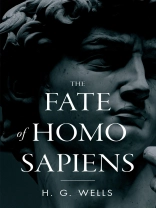When we look at all the main religions, as well as patriotic, moral and traditional systems in which human beings are sheltering today, they appear to be in a mutually destructive movement, like the houses and palaces of some vast, sprawling city overtaken by a landslide. To the very last moment, despite falling rafters and bulging walls, men and women cling to the houses in which they were born and to the ways to which they have grown accustomed. At the most, they scuttle into the house opposite or the house next door. They accuse each other of straining the partitions and overtaxing the material; they accuse other people of secret mining operations. They cannot believe such turmoil can continue. The city is still sound enough, they say, if it is not too severely tried. At any pause in the wreckage, they exclaim, ‘What did I tell you? It’s all over. Now we can feel safe again.’
When they finally realise the inevitability and universality of the disaster, most of them have become too frantic to entertain the possibility of one supreme engineering effort that might yet intercept those seeping waters that have released the whole mountainside to destruction. Such a salvaging of our species is still possible if we spend all our energy and effort on truly uniting mankind. That is as much as the most hopeful mind can say.
Jadual kandungan
The End or Salvation: H. G. Wells and the Two-Faced Fate
Introduction
§1Preliminary Statement
§2Biology Invades History
§3How Species Survive
§4History Becomes Ecology
§5Union Now?
§6What Is Democracy?
§7Where Is Democracy?
§8What Man Has to Learn
§9Sample of a Generation
§10Estimating Hope
§11Survey of Existing Forces
§12The Jewish Influence
§13Christendom
§14What Is Protestantism?
§15The Nazi Religion
§16Totalitarianism
§17The British Oligarchy
§18Shintoism
§19The Chinese Outlook
§20Subject Peoples
§21Communism and Russia
§22American Mentality
§23Three Factors in Everyone
§24Summary
§25Impossibility of Utopianism
§26Decadent World
Notes
Mengenai Pengarang
Herbert George Wells (1866-1946) is considered one of the pioneers of the science-fiction genre. His earliest and best-known novel is The Time Machine (1895). Wells’ works always contain social criticism, reflecting his aim to realise political ideas with the help of literature. With his dystopian oeuvre, he wanted to startle his compatriots out of their Victorian self-righteousness, criticise imperialism and warn against blind optimism about progress.












